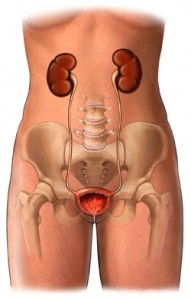Archive for August, 2011
How Urinary Tract Infection can affect your Pregnancy
 What is urinary tract infection?
What is urinary tract infection?
Urinary tract infection is usually a bladder infection which is accompanied by symptoms like constant urge to urinate and an uneasy and burning sensation when you do it. However, your bladder is not the only organ that is affected by this infection. Your urinary tract infection can extend from the kidney and also affect the urethras.
Why urinary tract infection is common in pregnant women
The risk of urinary tract infection is high in pregnant women from the sixth week of their pregnancy. One of the main reasons why urinary tract infection is high in pregnant women is because of the changes in the urinary tract. The uterus is directly above the bladder and when the uterus grows the increase in size and the weight of the bladder can affect the drainage of urine which can cause infection.
Symptoms of urinary tract infection
- Some of the symptoms of urinary tract infection include:
- Frequent urge to urinate
- Burning sensation when urinating
- Presence of mucus or blood in urine
- Disturbance when sleeping as you may wake up from sleep to urinate
- Discomfort during sexual intercourse
- Strong odor or foul smell from urine
- Pain in the bladder area
- If the infection spreads to the kidney, you can experience back pain, fever and vomiting.
How urinary tract infect your baby
When urinary tract infection is not treated, it can lead to infection in your kidney. Infection in the kidney can cause early labor and affect the weight of the baby. However, if the infection is treated early and properly, it does not affect the kidney and will not harm the baby.
Treating urinary tract infection during pregnancy
If you are suffering from urinary tract infection, you can approach your doctor who will prescribe medicines that will be safe both for you and the baby.
How to prevent urinary tract infection during pregnancy
Some of the steps that you can take to avoid urinary tract infection include drinking at least 8 glasses of water every day, reducing the intake of caffeine and alcohol, urinating frequently, cleaning the genital area after urinating and wearing cotton clothes.
Starving To Stay Thin Can Have Long-Term Consequences
 Women who are starving to stay thin have new problems to deal with. Researchers have found that women who starve to stay slim have a higher risk of coronary heart disease when they grow old.
Women who are starving to stay thin have new problems to deal with. Researchers have found that women who starve to stay slim have a higher risk of coronary heart disease when they grow old.
Researchers at University Medical Centre in Utrecht, who conducted a study of about 8,000 women who were kids or teenagers during the Dutch Famine in 1944 found that under-nutrition, particularly during adolescent years, can increase the risk of coronary heart disease.
Women who were aged between 10 and 17 years when the famine started had 38 percent more risk when compared to women who did not have to go through the famine. After taking into consideration, factors like smoking, famine and education, the scientist found that women who were exposed to famine had a 27 percent high risk of heart problem when compared to women who were not exposed to the famine.
This study shows that under-nutrition can have a negative impact on the heath of people. Doctors recommend that women must eat at least 2,000 calories a day. However, most young women don’t eat enough food because they want to stay in shape.
Today, many young children are unhappy with the shape of their body because they want to emulate models and actresses. When children don’t eat the right food, their growth can be stunted and they could face health problems in future. Therefore it is important that parent don’t put undue pressure on kids. It is also important that parents talk to children and help them understand the dangers of not eating the right food.
